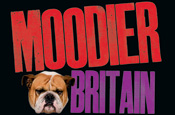The speed at which super-markets have responded to the economic downturn with value offers has meant that they are now more trusted than the media, banks, airlines and politicians, according to McCann Erickson's latest Moodier Britain survey.
The latest phase of the research, carried out on 1028 adults between February and October, shows that half of those polled for the study, last conducted in March (Marketing, 25 June), have little trust in banks, with a quarter stating they have no trust in them at all; fewer than one in 10 trusts politicians. In comparison, 54% of people trust their supermarket, suggesting that they have successfully communicated that they are on the side of consumers, despite rising food prices.
Price rises at the forecourts have also led to mistrust of oil companies; 45% of respondents said they don't trust them at all, while a further 41% said they have little trust in petrol suppliers.
In addition, energy suppliers should be concerned, because cutting down on heating is among the first areas consumers are likely to rein in spend first.
This is indicative of the fact that now that the worldwide economic malaise is beginning to hit people in the pocket, previous concerns about the environment, war in Iraq and terrorism have slipped down the public agenda, to be replaced by bread-and-butter issues.
The research shows that uncertainty has grown and, perhaps predictably, the state of the economy has replaced immigration and crime as the nation's primary concern.
In March, just 24% of Britons said they were concerned about the impact of the credit crunch, compared with 60% today. However, what is more interesting is that while the macro-economic situation was already worrying people in March, it had not yet affected personal finances. This is no longer the case, as the ever-rising cost of living angers consumers.
Brands can learn from this. As pointed out in previous instalments of the survey, people are gravitating toward those that 'think small' by adopting values and attitudes that make them feel increasingly local, personal, authentic and accessible.
With the economic crisis spreading globally, the research indicates that people are seeking refuge in brands that offer local credentials as a buffer against a 'big, scary world'. The proportion of people citing 'local' as an important brand value has risen from 71% to 77% since March. Brands that come across as empathetic and genuine, rather than affording consumers status, have also gained following the summer of financial meltdown.
But there is a glimmer of hope, with 90% of people believing that some positives will arise from the situation and that lessons will be learned by the time that the recession is over.
More than one in five of those surveyed said we are all, to some degree, responsible for the credit crunch, with 70% predicting consumers will begin to save more and cut credit. Indeed, 38% of people agreed that they have taken on debt that they shouldn't have.
For McCann Erickson, this serves as evidence that society will become more reflective, with people undertaking fewer environmentally harmful activities, such as driving and travelling abroad for holidays.


